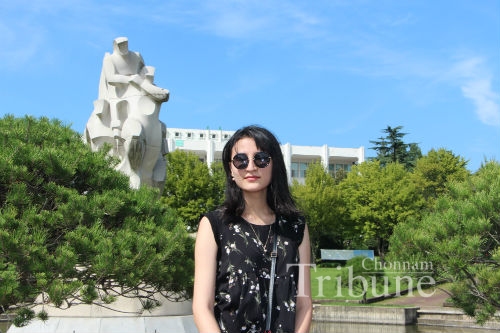
In every religion, there are written and unwritten rules that religious people should strongly follow. Every religion has their own holy book, for example, Christians have the Bible and we (Muslims) have the Quran. More importantly, in those completely different books there are written rules and things that are possible and impossible to do. However, I am going to emphasize one of the characteristics of Muslim people. For us eating pork and drinking alcohol are unforgivable sins, so every Muslim endeavors to obey the rules of the Quran wherever they are and under whatever situation they are in.
Finally, we got an opportunity to tackle the topic of the life of Muslims in Korea. Till today we did lots of research on that topic and found a lot of materials and interesting information, though we could not speak firsthand. Moreover, here we want to emphasize the difficulties that Muslims stumble upon, the kind of food, the places to pray (Mosques), our lifestyle and so on.
The majority of Muslim students at Chonnam National University are from Pakistan, Uzbekistan and Bangladesh. When it comes to practicing our religion, Islam, in South Korea, there are no religious restrictions. Albeit there are some complexities, it is not easy to some extent. Firstly, the reason for this is the shortage of mosques in Gwangju. There is only one mosque in Gwangju which is situated quite far from CNU. Therefore it is a bit hard to manage our time and do our daily religious rituals. Despite the complexities we are accustomed to going to mosques during our religious holidays like Ramadan, Eid and so on.
The next issue is that it is hard to find halal food restaurants near CNU. In Korea most meals contain pork which is a sin for Muslims to consume. It’s a big part of Korean culture along with grilling pork, it is a bit tough for Muslims to cope with. Muslims, especially those who live in a Dormitory, don’t have access to halal foods because the cafeteria is not offering halal foods. Additionally, the following predicament can be the lifestyle of Koreans. For example, drinking Soju is a part of Korean culture and during every event or meeting they are used to drinking alcohol.
With all respects and appreciations, we Muslim students ask CNU to open a small cafeteria near our campus. It would be one of the best decisions for international students. In spite of the difficulties that we face, we are trying to do our religious rituals here using some facilities that exist in Gwangju. And our friends think that these kinds of idiosyncrasies and our different lifestyle make us stand out more than any other society. Even though life here seems tough for Muslims, we are proud of our decision.

